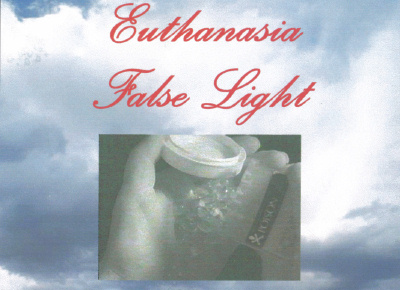Scroll Down for Articles
Assisted suicide supporters claim it would offer a choice to people who want it. But it would actually victimize minorities and poor people.
As disability rights activist Diane Coleman has observed, assisted suicide is primarily promoted by those who are “white, well-off, worried and well.”
“Choice” is an appealing word, but inequity in health care is a harsh reality. Consider the following:
- African-American patients with a broken arm or leg are less likely to be given pain medication in emergency rooms than white patients with similar injuries and complaints of pain, according to a new study published in the Annals of Emergency Medicine. [Reuters 12/28/99]
- African-Americans with symptoms of heart trouble are only about half as likely to be referred for the best testing and treatment as are their white counterparts. [Times-Dispatch 3/31/99; NEJM 2/25/99 ]
- African-American cancer patients in nursing homes are severely undertreated for pain – some don’t even get aspirin. [NY Times 6/17/98; JAMA 6/17/98]
- Black and poor Medicare patients are more likely than others to be discharged from hospitals in unstable condition. [Contra Costa Times 4/20/94; JAMA4/20/94]
- African-American women receive less breast cancer screening than their counterparts of other races. [Annals of Internal Medicine 8/1/98]
- Despite equal Medicare coverage, affluent elderly white patients often receive better medical care than African-Americans or poor people of all races. [NEJM9/12/96]
- Outpatients with cancer who went to clinics that served minority patients were 3 times more likely to be under-medicated for pain than were patients in other settings. [Annals of Internal Medicine 11/1/97]
- African-American academics who study bioethical issues have expressed concern that permitting assisted suicide, along with new limits on health care, presents new opportunities to victimize minorities: “People know they don’t get the health care they need while they’re living. So what makes them think anything’s going to be more sensitive when they’re dying.” [Detroit Free Press 2/26/97] .
- African-Americans make up 35% of reported AIDS cases, but nearly one-half of all AIDS deaths. [Los Angeles Times 10/10/99]
- Psychiatric clinicians spend less time with African-American patients than with patients of other races. [San Francisco Chronicle 5/30/96]
- African-American women die from treatable illnesses (e.g. diabetes, hypertension, etc.) at twice the rate of white women and African-American men die at a rate almost three times greater than white men. [Sunday Oregonian 6/7/98]
- According to a study in the Journal of the American Medical Association, women, African-Americans and Hispanics with AIDS are significantly less likely than other groups to get the latest drugs and the best care. [Detroit Free Press 6/24/99]
- Although white women have a higher rate of cancer than African-American women (118 per 100,000 compared to 95 per 100,000), the death rate for cancer among African-American women is higher (27 per 100,000 compared to 21.7 for white women). [Nat’l Center for Health Statistics, Detroit News 10/24/97]
- African-Americans are 50 % less likely to get heart by-pass surgery and 25% less likely to get pain medication than their counterparts in other races. And 10 different studies in the U.S. have shown that the disparities cannot be explained away by the fact that, as a group, African-American patients tend to be poorer, sicker and have less health insurance than white patients.[Transcript of ABC Nightline 2/24/99]
If policies or laws permitting assisted suicide are approved, assisted suicide could become the only type of “medical treatment” to which certain people — those who are members of minority groups, those who are poor, or those who have disabilities — would have equal access.
The last to receive health care would be the first to receive assisted suicide.
Articles
“RNs and CNAs Work Fewer Hours in Nursing Facilities that Serve Predominately Ethnic and Racial Minorities”
(Center for Medicare Advocacy — January 27, 2016)
A December 2015 Health Affairs study of freestanding Skilled Nursing Facilities (SNFs) found that registered nurses (RNs) were less likely to work at nursing homes with high concentrations of racial and ethnic minorities….Racial and ethnic minority nursing home residents have not been receiving the same quality of skilled care as white patients and the consequences of this disparity have been significant.




